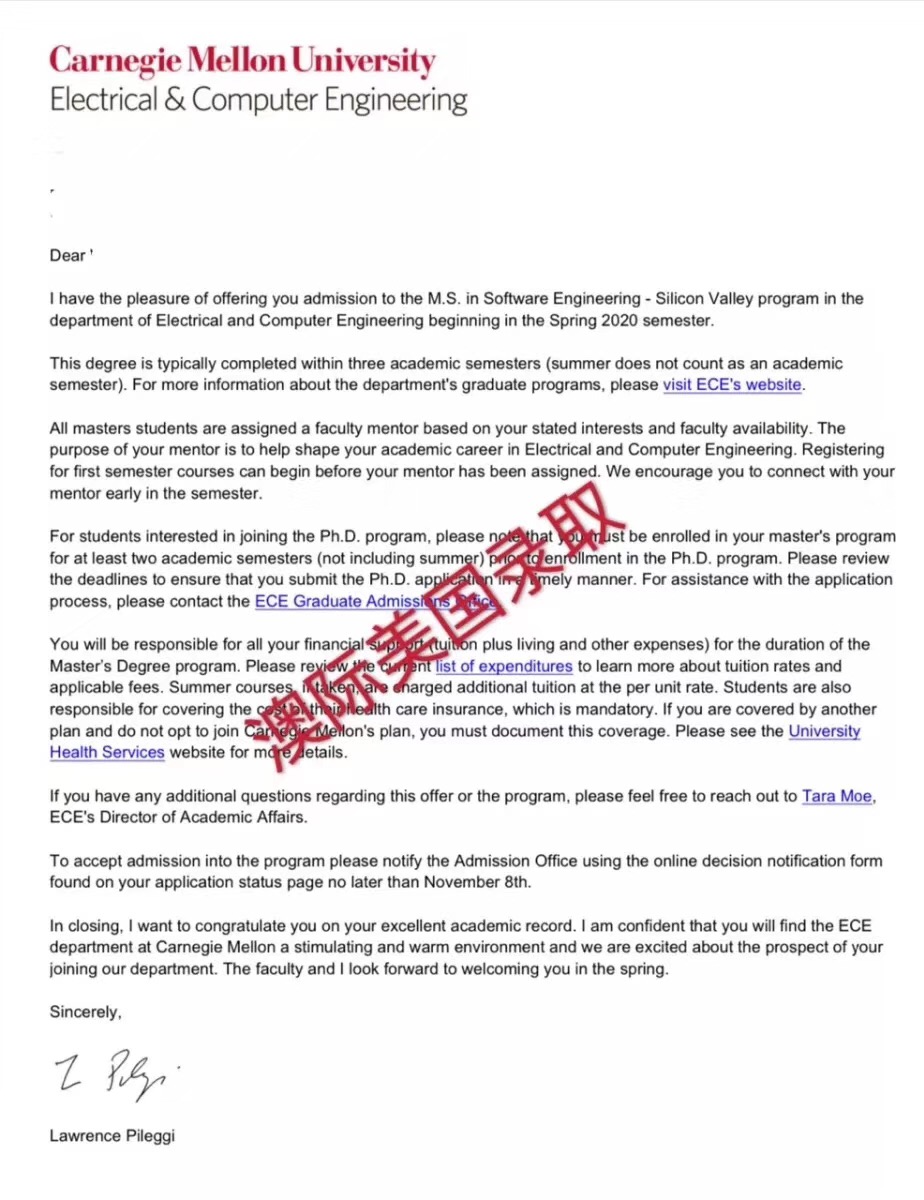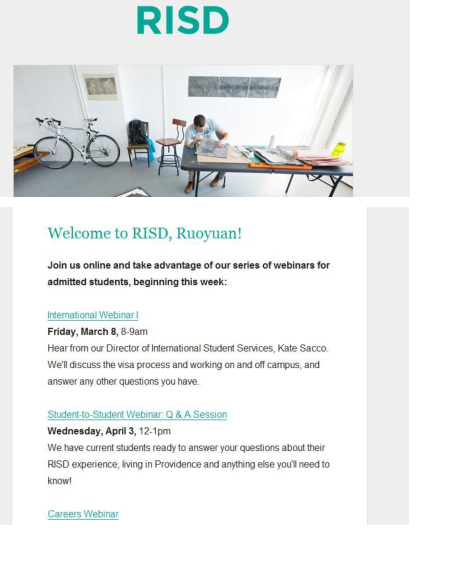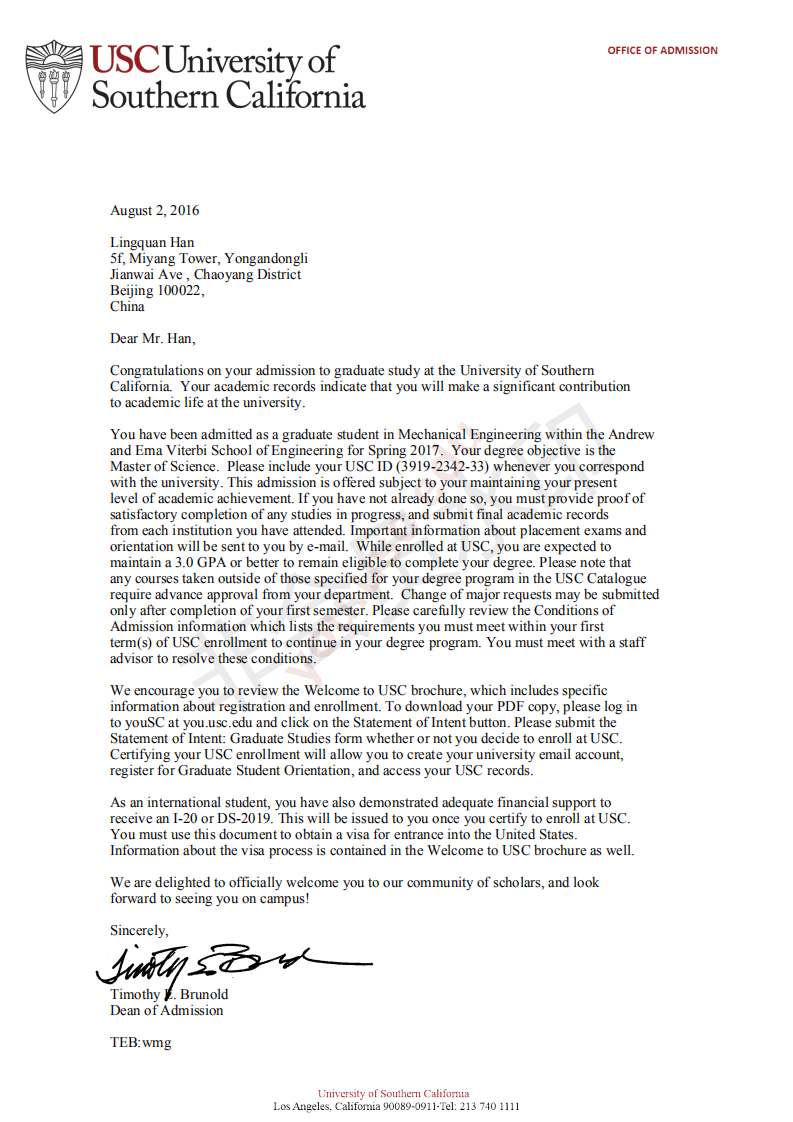美国大学教授的套磁回复建议.
2017-07-20 350阅读
去美国读研究生如何套磁成为大家比较关注的问题,但是对于很多计划去美国读研究生的人来说,在与美国大学教授套磁的时候,往往需要参考一些信息和建议来保证自己的美国研究生套磁是有效的,下面就来看看具体的情况。
Dear XXX(a student from China),
I read your statement again during the weekend . It is clearly that there is a cultural differences here. In the US, the criteria to admit a student primarily rests on merits (connection may count in some private elitist schools where that the parents being an alumni will or a big contributor add points). Especially in public university, the admission process is very transparent and conducted in a committee. When I was at Berkeley, I ran for one of the two student representatives to the doctoral admission committee.I read admission files with my other 5 faculty members. During the three rounds of discussion, I had one vote just like each of my professors. We admitted the students purely based on merits. There was a separately financial support committee composing with faculty and students who do not need financial aids (for fear of conflict of interests).
2 We developed a table by GRE, TOFEL, SAT and GPA. It is easy to screen off about 70% of the applicants who were obviously unqualified -- low scores, lack of supporting documents, incomplete forms, major errors, missing deadlines, etc. Then we divided the remaining 30% into three groups -- must accept (students we love to get when they may go to other better schools), should accept (those who are good enough), and the marginal case (usually we put them on waiting list). Doctoral admission also relies on another important factor -- whether there is a professor in the department who has common research interest to take care of the applicant for the next 5 years. This is not very important for a master applicant because most master programs are fairly standardized.
So, with a reasonably good TOFEL and GRE score, how can you market yourself better? Your academic training, your academic interest, your future career or scholastic plan, and your dedication are the stuff the admission committee will examine. Letters of rerence are very important but you don&apost have that advantage because unless you are applying to a school where your professor at *** graduated (or your professor is known in the field worldwide); otherwise, these letters from China (sometimes with translation) will not help too much. Of course, you must make sure none of these letters hurt you. Then what makes you different from other applicants and deserving a fellowship?
Some work sample, prior studies, project reports will give the committee a chance to gauge your level of competence. So only send stuff that is good -- it is tough because of the translation requirement. Life is full of constraints and opportunities. So you try your best and hope of the best. When opportunities present to you, seize them.
Your score is good enough to get to most schools (don&apost worry about the verbal part of the GRE -- which you are very good as a non-English speaker and your TOFEL is OK because it is above 600. You will be accepted by some schools but then what?
You have several options:
a. get to the cheapest and most affordable place that accepts you -- it may be in a remote, isolated place. But if you are lucky, you study a subject you like in a program that is solid.
b. get to a good university but financially you are bit vulnerable -- you may be in the field you like or not.
Here good university means the fame of the whole university -- not the standardof the department. You should do some research about the reputation by department in the fields you applied for. The fame of the whole university is more relevant for undergraduates. For graduate schools, the department&aposs reputation counts more because of the network of professors in that field. For example, computer science at Penn is lousy but its MBA is the best in the world (better than Harvard and Yale). Also my previous university FIU is lousy but its hopitality/sea cruise program is one of the best two in the country (the other one in Las Vegas). It is about the niche.
All this related back to your goals. It seems to me that you just want to studyin the US regardless interest. If you show such desperation in your application, it may raise a red flag. Committees want to accept good students in terms of academic potential. So try your best to hide that motivation. Since it is a practical concern to you, you may like to go for option a. as dined above. Use the 2 years as a time to get adjusted, obtain a very high GPA, complete one or two excellent term papers. You should know the niche of graduate schools in your field, so you may consider transfer in the second year, or get another master degrees or a doctoral. Also develop your connection and identify your true academic interest in those two years. Make sure that when you applied for Ph.D. or for a job, you have 2 to 3 American professors who are fully supportive.
4 Given your ability, you would like the US because this is a place that appreciates handwork and individual merit. It is a country full of opportunities. Guanxi helps but not a factor that limit you. However, you must be very independent and always lonely in mastering your future and taking your responsibilities.
关系固然重要,做自己喜欢的研究,拥有清晰的职业规划,更加重要。只要这样才能够迈向自己想要的生活。
Another matter is about the long-term career future. Computer, IT & biotech will be the future of the world just like electricity, telephone, telegram around the turn of the 20th century. Despite the setback of the high-tech industries (dot.com, etc.) in the past 10 months, these field have lot of future. However what I saw in the past decade was that most Asian students came and stayed in engineering and then computer; then make a good living. Few of them were entrepreneurial enough to have their own companies. Most of them lived in an isolated social and cultural setting that they did not fully integrate into the US mainstream. The main reason is that they lack the language skill, so they could not get to marketing or key positions which require bargaining, negotiation, and management skill -- all in English. It is clear that when they were studying here, they did not use English.
They found a place to excel in their technical and mathematical expressions. This specialization hurts them in the long-term, so some of them returned to Taiwan and Korea. Some try to work in import and export trade between Asian and the US. Some worked for Dell, IBM,Microsoft but worked in China. I just let you know you can choose if you prepare yourselves early enough. It is up to you to pick the best path for you.You will be on your own most time but I am happy to discuss with you if I have less time pressure.
Take care and good luck!
通过上面对去美国读研究生如何套磁的介绍,相信对于很多人来说,在与美国大学教授套磁的过程中,要保证上面的一些建议得到实施,以便顺利套取美国大学的offer。
澳际提示:
1.申请美国研究生套磁中的取舍问题
2.美国研究生申请套磁信范文
3.去美国读研究生和谁套磁好
需要了解更多相关信息请点击
想要获得更多咨询服务点击进入 >>>>有问题?找免费的澳际专家咨询! 或联系QQ客服: ,也可以通过评论处留言,把您最关心的问题告诉我们。
留学咨询
更多出国留学最新动态,敬请关注澳际教育手机端网站,并可拨打咨询热线:400-601-0022
留学热搜
相关推荐
- 专家推荐
- 成功案例
- 博文推荐

Copyright 2000 - 2020 北京澳际教育咨询有限公司
www.aoji.cn All Rights Reserved | 京ICP证050284号
总部地址:北京市东城区 灯市口大街33号 国中商业大厦2-3层









陈瑶A 向我咨询
行业年龄 17年
成功案例 5146人
拥有大量高端成功案例。为美国哈佛大学、宾夕法尼亚大学等世界一流名校输送大批优秀人才。
齐亚楠 向我咨询
行业年龄 15年
成功案例 4070人
商科案例有哥伦比亚大学等,工科案例有麻省理工大学等,艺术案例有罗德岛大学等。
李君君 向我咨询
行业年龄 15年
成功案例 4157人
成功案例涉及美国排名前60的院校,专业涵盖商科(金融,会计,管理),工科(生物工程,化学工程,计算机科学,电气工程)等热门领域。
闫丽 向我咨询
行业年龄 19年
成功案例 6995人
成功办理了2000多名学生,申请到斯坦福大学、约翰霍普金斯、康奈尔等世界前30的名校。